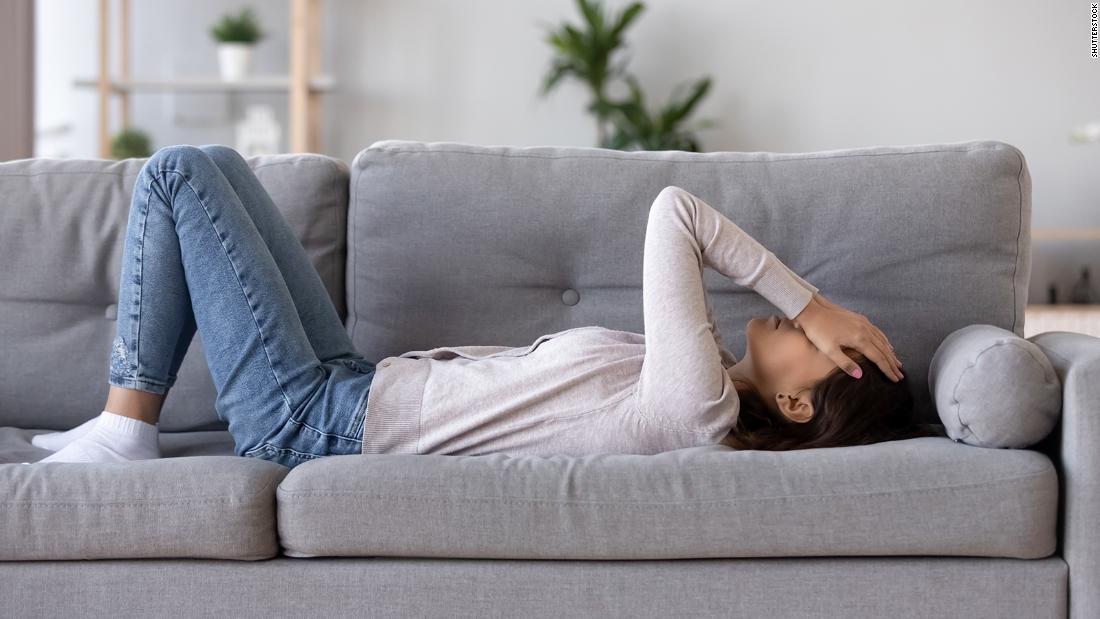Restrictions to control the spread of Covid-19 kept teenagers at home “at the age when they were prepared to seek independence from their families,” said research co-director Dr. Gary Freed, professor of pediatrics at Percy and Mary Murphy at the University of Michigan.
The pandemic has severely affected their lives, Freed said, pointing to the cancellation of school activities and the impossibility of going out with friends due to social detachment.
As a result, many teenagers are feeling “frustrated, anxious and disconnected”.
Three out of four parents surveyed said Covid-19 had a negative impact on their teenagers’ ability to socialize with friends almost every day.
Significantly, parents of adolescent girls reported higher levels of depression and anxiety than parents of adolescent boys – 31% of girls experienced depression compared to 18% of adolescent boys, while 36% of girls faced anxiety versus 19% of adolescents Boys.
Social media could be to blame for teenagers’ anxiety and depression, said Stephanie Clarke, a psychologist and clinical assistant professor of psychiatry and behavioral sciences at Stanford University School of Medicine, who was not involved in the study.
Teenagers may have the impression that “people’s lives are perfect” on social media, she said, which is one of the main methods of communication during the pandemic.
“It creates anguish when, realistically, everyone is struggling with the ups and downs of adolescence and life,” said Clarke.
Freed emphasized that, although parents of teenage girls report higher rates of depression and anxiety, the important lesson is that both girls and boys are struggling and need support.
How parents can help their teenagers
The research also aims to show that parents are not alone, said Freed.
“We think it would be something that would help parents understand what other parents are going through,” he said.
Parents resorted to various coping strategies to help their teenagers deal with the situation. Half of the respondents relaxed family rules, with 81% of parents reporting that the strategy helped their children.
Freed said relaxing family rules could include allowing teenagers to spend more time on social media connecting with friends. Seventy percent of parents who eased restrictions on social media said it helped their children.
Almost a quarter of parents said the pandemic affected their teen’s sleep schedule. Freed emphasized the importance of a regular sleep routine as part of a healthy lifestyle.
It is important for teenagers to sleep and wake up “according to their online learning schedule and opportunities to interact with their peers and family,” said Freed.
About a quarter of the parents said they sought out mental health care providers for their teenagers, with the majority saying it was effective.
Keeping the lines of communication open between parents and children during this time is also especially important, said Clarke.
She recommended that parents ask open-ended questions, but don’t force it. For example, parents may ask, “This whole situation has been very stressful, how are you handling it?”
If a parent is concerned that his son might have thoughts of suicide, he should ask directly, according to Clarke.
“Many people have the mistaken belief that if you ask someone about thoughts of suicide or suicide, it will plant the idea in your head – that is not the case,” said Clarke.
Freed recommends that if parents hear their teen “express any thoughts of suicide or self-harm”, they should seek professional help immediately.
